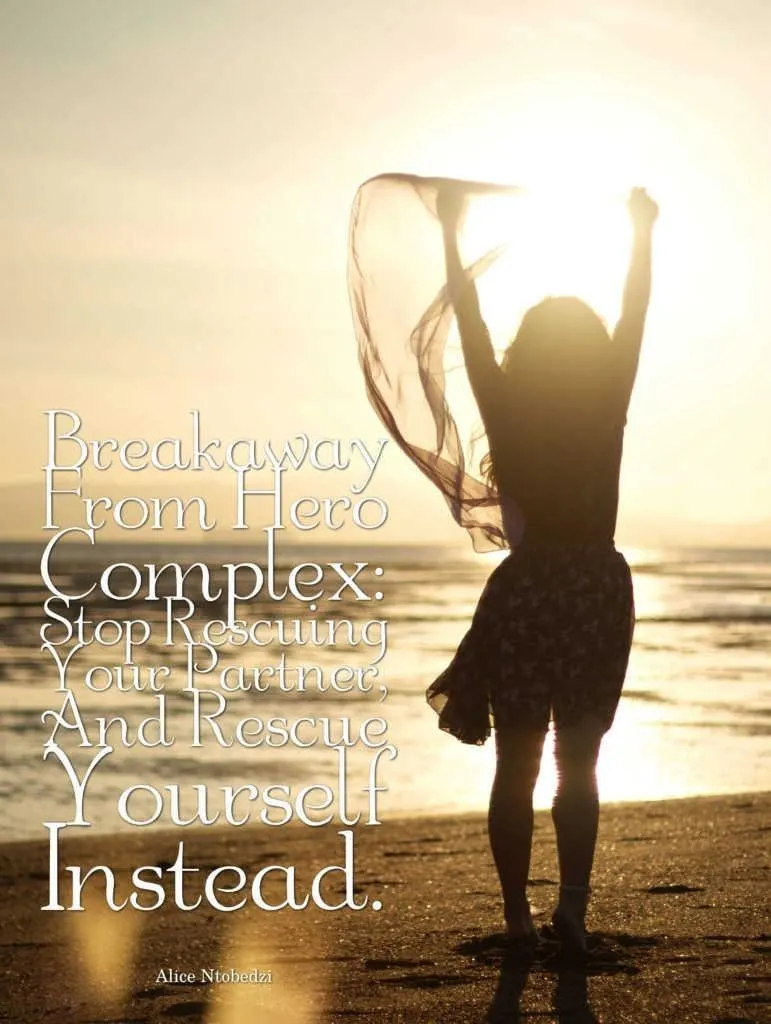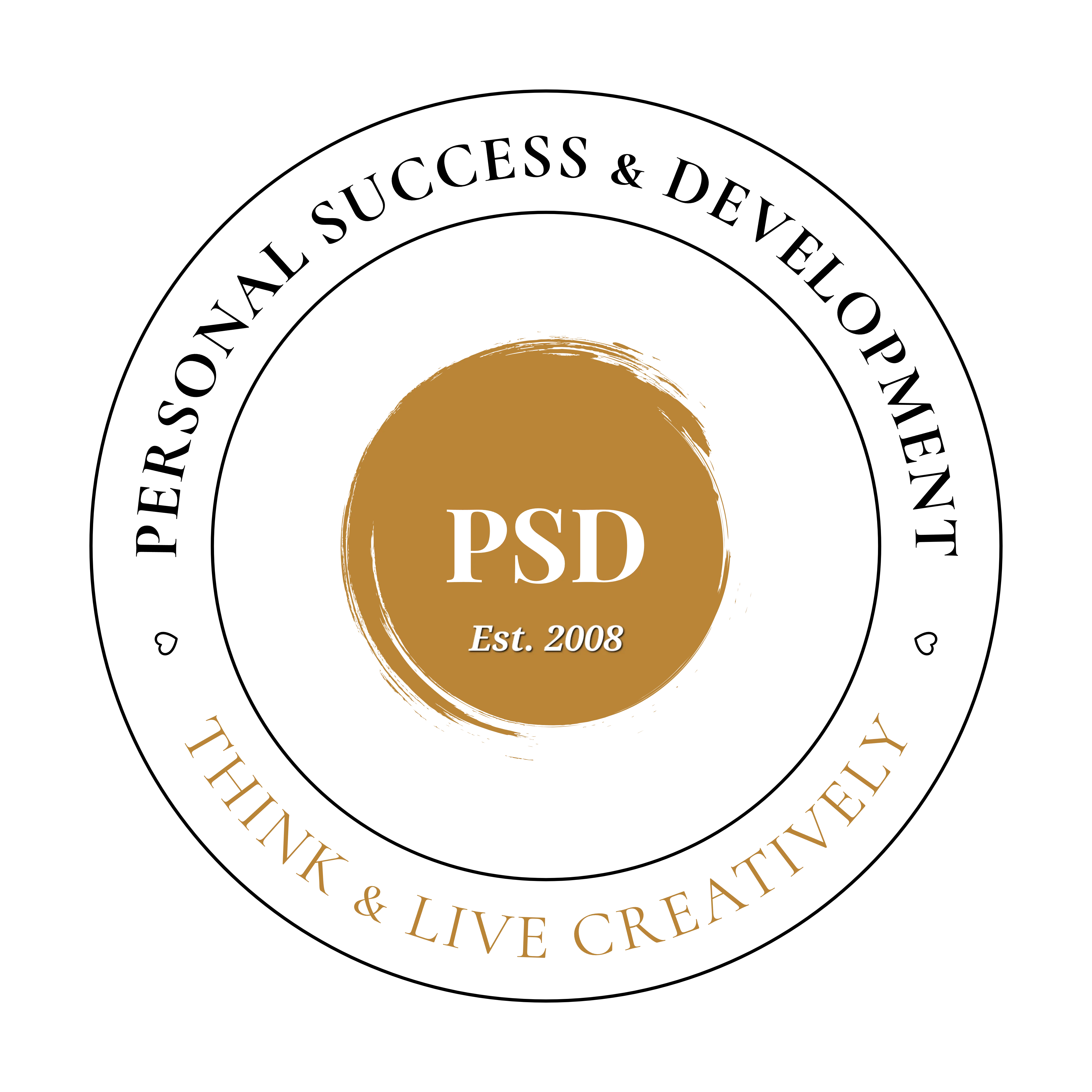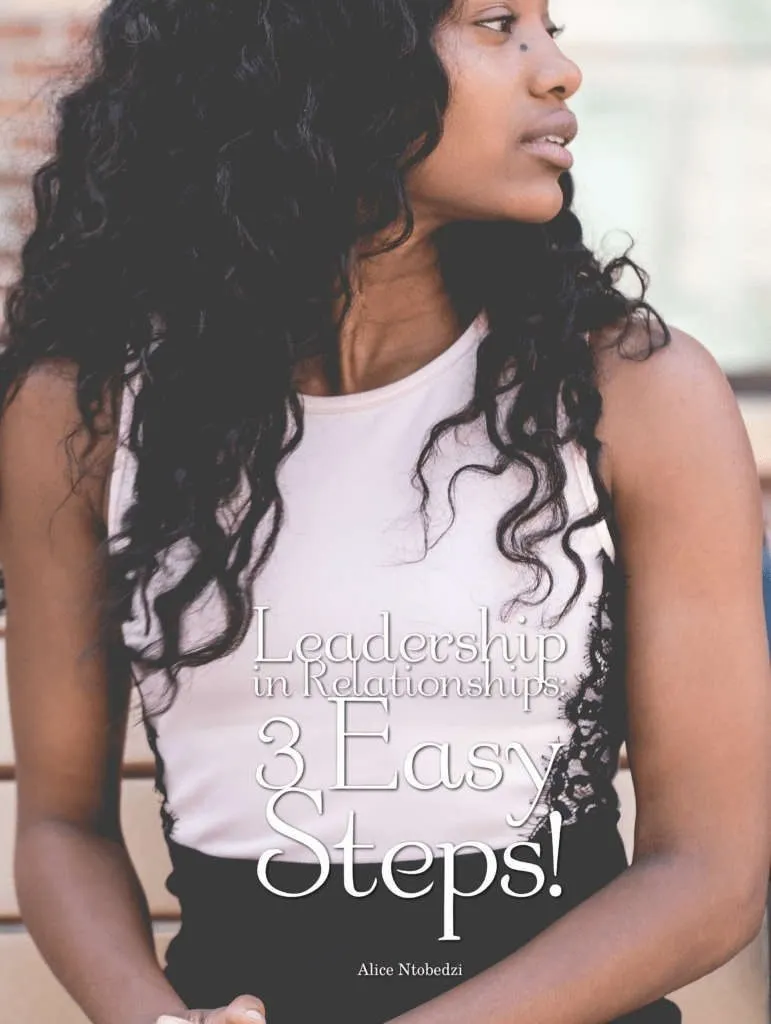Breakaway from hero complex: Stop rescuing your partner and rescue yourself instead.
Breakaway from hero complex: Stop rescuing your partner and rescue yourself instead.

"Most relationships fail not because of the absence of love. Love is always present. It’s just that one loves too much and the other loves too little". – The Love Bits
Many of my clients complain about how they are treated in a relationship. Upon enquiry, I find out they are usually unaware of 2 key facts:
- that they have themselves attracted this problem and
- the reason behind attracting it.
It turns out that they have been playing the role of a hero in their relationship, as a result of which, they:
- feel invisible,
- keep giving too much,
- they are emotionally exhausted,
- are the ones to keep the relationship intact, if at all,
- constantly work hard to maintain an optimistic attitude about the relationship.
And while they’re experiencing all of this, they’re not even consciously aware of the unbalanced dynamics in the relationship. All they are aware of is that probably they’re still not giving enough.
If you are currently playing ‘Hero’ in your relationship or have done so in the past but are ready to understand the dynamics behind it all and play the love game differently, then I’m writing this blog just for you.
Even though the early stages of a relationship can be positive and fulfilling and are usually referred to as the ‘honeymoon phase’, in a lot of relationships, the spark can quickly fade away. Instead of building strong foundations and working as a team, unconscious power struggles emerge, our unhealthy personality aspects surface and we play roles instead of being ourselves.
In order to manage these shifts in the dynamic, caretaking can become a substitute, keeping the peace by giving more love. If you are the one giving more love, then you’re being the hero! Welcome to a whole new world of awareness...
Keep reading...
There are a number of words that have been used to describe a hero in a relationship:
- Caregiver
- Co-dependent
- Victim
Please reach out to me by email if you want to learn more about the connection of the hero with the ‘co-dependent’ or the ‘victim’.
Let’s unpack our hero, here...
One of the hallmark personality traits of a hero is the tendency to rescue and take responsibility for others. At the core, a hero has a belief that they do not matter, therefore they invest all their emotional energy, time and resources towards others.
This is because they lack self-worth. It's easier for them to give and not receive. In fact, they often even react negatively to receiving and do everything possible to resist a gesture of love or kindness.
By doing so, a hero repels positive energy and appears to have limited capacity for positive experiences. They thrive and find self-worth through self-sacrifice. They find significance through being the saviour of others, even if their happiness is doomed inside.
But is this model of love sustainable in the long run?
Obviously, it would be difficult to be in a relationship with someone who wants to only give love and not receive it.
In one instance, the hero can get lucky with a functional partner, who is able to give and receive in a balanced manner. However, the Hero’s behaviour robs the other partner of opportunities to do something for the hero. Because, the hero is self-sufficient, so to say, and no matter how much the other person wants to give, the hero never needs the extra love... And gradually, they even stop trying.
In another instance, when the problem is in its extreme form, the hero might attract partners who are under-functioning (caretakers) so that they (the hero) feel needed and can play the role of a hero.
In this instance, the hero creates unconscious agreements with their partner such as “I won’t challenge you to grow as long as you let me take care of you.”
A hero finds satisfaction in being able to rescue others and boosts his/her self-esteem this way, in such a dynamic.
What the hero might not be in touch with is that, by their noble character, they also become invisible in the relationship.
If you have been acting like a hero in your relationship you may want to ask yourself, “How does it serve me if I please others at the cost of losing my identity? How does that meet my needs and nourish my soul?” What’s the answer you’re getting?
The trouble is that this is all the hero knows, through years of unconscious programming. It is their coping mechanism, and they run on automatic patterns.
The thought of doing it differently scares them as there may be perceived negative consequences. They lose themselves in the name of love, as long as they don’t have to face the fear.
Deep down a hero wants mutual benefits in a relationship but has limited capacity to receive love. This can stem from early life experiences or past relationships in which they were made to believe that asking for what they want is selfish. They learnt to suppress their needs, and they got submerged in guilt.
The flip side is that most of the time a hero believes that their partner does not give them love, not realising that they are the ones to block the love or to have attracted a partner who is a ’taker’ and just not capable of giving love.
If you are a hero in your relationships, it is time to learn to receive love. It is time to take full responsibility for the outcome you want in your relationship.
And here are 3 simple but under-rated steps that can help you break free from being a dysfunctional hero, blocking love, having an imbalanced love dynamic. Which in turn will help you build a healthy and functional relationship? One of these was discussed in detail in a previous article about your relationship blueprint.
Step 1: Make a decision to break away, draw boundaries and stick to them.
First of all, know that it is not your responsibility to take care and fix others. When you are in a relationship you want to be co-creators, you want to be with someone who shares the same goals and desires for the relationship. You both put in the work to make it happen. When you are focused on rescuing your partner both of you will cease to grow. Personal growth is an individual journey. So, make a decision to break away, draw boundaries and stick to them.
Ask yourself these questions:
- Is it possible I am trying to be a hero in my relationship?
- Are my needs being met in this relationship or only my partners?
- What would I like to do differently?
- How can I tap into my heroic strengths and keep my word to myself?
Step 2: Manage feelings of guilt.
Guilt is a powerful emotion, and it is the reason most people find it difficult to change. Accept feelings of guilt by exploring them using these questions:
- Why do I believe it is wrong to take time for myself?
- Am I being fair to myself by making myself feel invisible?
- What would I tell a friend if they were in a similar situation?
- Would I be proud of my child displaying such behaviour towards themselves?
Step 3: Take time to yourself and tap into your innate creativity.
You can spend time championing others and put all your life goals on the back burner. Most people regret the way they spend their time later in life realising that they gave into fear or worrying about others’ judgement. You only live once and every moment is precious, and you want to live a life that will be pleasing to yourself and one which you’re proud of on your deathbed.
Exercise: Close your eyes and fast forward your life a bit: Imagine you are now in your 80’s and reviewing the way you lived your life, are you pleased with how you loved? Others and even more importantly, yourself?
Just by following this simple process, you can break away from being the dysfunctional hero and take full responsibility for having created unsatisfying relationships in the past.
You can become the master of your destiny, grow through self-leadership. Get the foundations of your relationships right. You owe it to yourself to do what is necessary to create a healthy and loving relationship. To learn even more about yourself, you can complete a psychological questionnaire which will help you identify your relationship pitfalls and understand your inner world. You can allow relationships to become a vehicle for growth and evolution, and you will be on the way to re-align yourself to your authentic and conscious relationship goals.
If you’re ready to do things differently but don’t know where to begin, reach out to me, book an online coaching session, here is my calendar.

